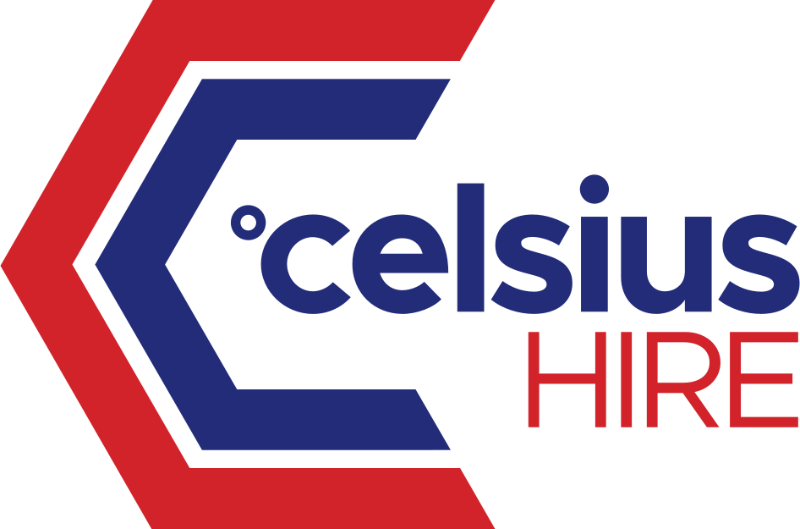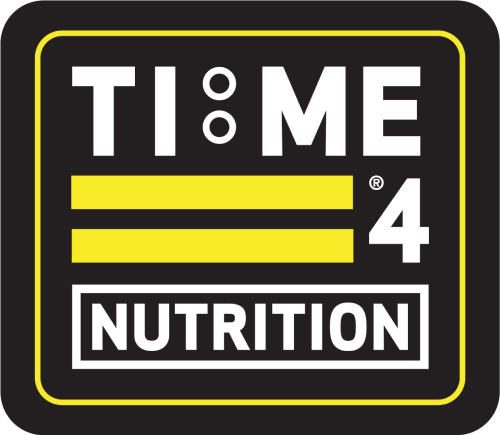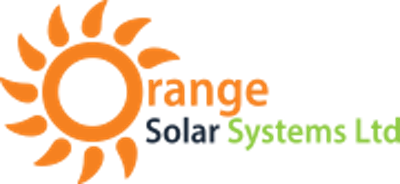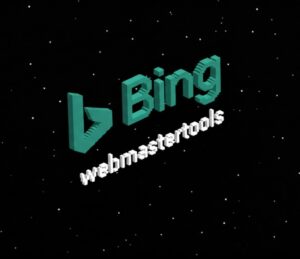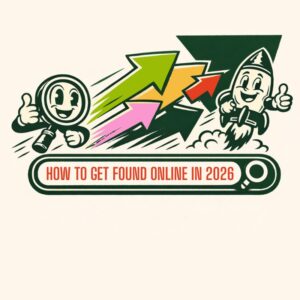Our team stays sharp so you don’t have to. From bite-sized SEO tips to long-form blog digital trends, The Knowledge Hub is where we share what’s hot, what’s changing and what actually works. Every post is written by our in-house experts, offering real-world experience and ideas you can use.

Specialist SEO agency
POWERFUL SEARCH-FIRST STRATEGIES THAT DRIVE SALES
GENERATE ENQUIRIES & REVENUE THROUGH SEO
boxChilli, an SEO agency with a kick
At boxChilli, we create SEO strategies built to help businesses across the UK get discovered online and convert search visibility into real enquiries, sales and revenue. If your website isn’t showing up where customers are actively searching, whether that’s local “near me” results, competitive organic keywords or AI-driven search experiences, valuable opportunities are lost to competitors that already occupy those positions.
Trusted nationwide since 2006, our in-house team based on the South Coast in Hampshire brings two decades of SEO experience to every campaign, combining proven organic search foundations with modern AI SEO and GEO to ensure strategies remain aligned to real business goals while using data-led, commercially focused approaches that improve visibility and consistently drive leads and sales.
-
IN-HOUSE TEAM OF OVER 30 SPECIALISTS
-
INCREASE LEADS, SALES & CONVERSIONS
-
BUILT FOR ORGANIC & AI-DRIVEN SEARCH
-
PROVEN RESULTS ACROSS MULTIPLE SECTORS
WANT BETTER RESULTS FROM YOUR SEO CAMPAIGNS?
WE'RE A GREAT FIT IF YOU...
The SEO agency that gets it
Depend heavily on paid media and want organic search to reduce acquisition costs long term
Are looking to work with an established SEO agency with proven experience and commercial insight
Struggle to appear in local “near me” searches and want to be found by nearby, high-intent customers
Have invested in SEO before but never saw a clear link between rankings, traffic and enquiries
Want your business to appear across modern search experiences, including AI Overviews and ChatGPT
Are being outranked online by competitors despite offering a better product, service or reputation
DON’T JUST ATTRACT TRAFFIC, ATTRACT CUSTOMERS
A full suite of SEO services
We blend proven SEO fundamentals with modern AI SEO and Generative Engine Optimisation (GEO) to create joined-up search strategies that capture organic demand across traditional search engines and emerging AI-led discovery platforms, extending visibility beyond Google and ensuring your business appears wherever customers now research, compare and make decisions.
And with experience across sectors including hospitality, travel and tourism, professional services, fitness and leisure, renewable energy, industrial and engineering, healthcare, and events and entertainment, bespoke SEO strategies are shaped around how real markets behave and how your industry functions.
Technical SEO
When a website is slow, difficult to navigate or hard for search engines to crawl, underlying technical issues often restrict performance, preventing pages from being indexed correctly, frustrating users and causing valuable enquiries or sales to be lost before they ever begin.
Technical SEO focuses on strengthening those foundations so your website works as it should. By improving page speed, fixing crawl and indexation issues, refining site structure and strengthening internal linking, we create a platform that search engines understand and users can move through easily. The outcome is a faster, more stable website built to improve visibility, convert more users and support long-term performance.
eCommerce SEO
eCommerce performance is often held back when products are difficult to discover and site structure fails to support how customers search and browse, causing revenue to be lost through weak category structure, limited visibility and fragmented purchase journeys.
This type of eCommerce SEO focuses on aligning search visibility with buying intent by improving how products and categories appear in search and how users move through the site. By improving on-page SEO, targeting high-intent searches and removing friction from the purchase journey, organic traffic delivers greater value over time, supporting more consistent sales growth and reducing reliance on paid advertising.
Local SEO
When your business does not appear in map results or “near me” searches, potential customers are often choosing competitors before they ever have the chance to see what you offer, leading to missed enquiries, lost calls and work being directed elsewhere simply because those businesses are easier to find online, even when their service, reputation or expertise does not match yours.
The aim here is to make sure your business shows up at the moments that matter most. Through keyword research, strengthening visibility across Google maps, optimising local listings and location-based searches, your business becomes easier to find and easier to choose when customers are actively looking nearby. This allows local search to contribute directly to enquiries, footfall and revenue, instead of leaving that demand to competitors who are easier to find online.
GEO & AI SEO
Search is no longer limited to a list of blue links, with AI-powered results, generated answers and changing user behaviour now influencing how people discover and choose brands, often shaping decisions before a website is ever visited, and when your business is not visible within those experiences, potential customers are quietly guided towards competitors instead.
GEO and AI SEO help ensure your brand remains visible as search continues to evolve, strengthening authority, content and user experience so your business appears within AI-driven answers as well as traditional search results, delivering wider reach, stronger trust and a search presence that continues to support enquiries, sales and long-term growth as behaviour changes.
International SEO
Expanding into new regions adds layers of complexity that traditional SEO strategies often fail to address, and without clear market signals, websites can struggle to communicate which content should rank where, resulting in diluted visibility and inconsistent performance.
A clear, structured framework enables your website to expand across regions and languages without creating overlap or search performance issues. By aligning technical setup, content and targeting with how people search in different markets, visibility improves in the right places and supports controlled, long-term international growth.
Conversion Rate Optimisation (CRO)
Driving traffic without conversions puts unnecessary strain on marketing investment, as visitors arrive but hesitate, abandon forms or leave without taking action, causing growth to slow and opportunities to be lost.
Improving conversion performance means removing friction from the journey and making it easier for users to take the next step. By refining layouts, messaging and calls to action, CRO helps turn relevant traffic into more enquiries and sales, improving returns without increasing spend.
Link & Citation Acquisition
Without strong links, consistent citations and broader online references through off-page SEO, search engines and AI-driven platforms have fewer signals to trust and prioritise your business, allowing competitors to appear more prominently in search results, map listings and AI-generated answers, even when their service or reputation falls short of yours.
Strengthening those signals helps change that position. By securing relevant, high-quality backlinks, consistent citations and broader brand mentions across trusted sources, your business becomes more credible and more visible across traditional search and emerging AI-led discovery. Over time, this strengthens keyword rankings, improves local search performance and increases visibility within AI-driven results, allowing search presence to convert into real enquiries and demand rather than being captured by competitors.
Wordpress SEO
As WordPress websites grow and change, performance can deteriorate without continuous optimisation, with issues such as slow page speeds, excessive plugins and structural inconsistency quietly reducing visibility.
WordPress SEO keeps your site performing reliably as it evolves by improving speed, refining structure and ensuring content is organised in a way search engines and users understand. This improves visibility and usability without sacrificing flexibility or design.
Website Migrations
Website redesigns, restructures or migrations carried out without SEO oversight can cause search visibility to drop almost immediately, with lost rankings, reduced organic traffic and fewer enquiries resulting from poorly managed redirects, URL changes or content adjustments.
A well-managed website migration protects and strengthens performance rather than putting it at risk. When migrations are planned in detail, authority is retained and search engines understand what has changed, visibility is maintained and frequently strengthened at launch, ensuring a smooth transition and a growth-ready platform that does not lose momentum.
SEO Consultancy & Strategy
Need direction as well as delivery? Our senior SEO consultants work closely with you to understand your goals, review current performance and create a clear plan for growth. Whether it is a one-time roadmap or long-term support, our SEO specialists provide clear, effective strategies that continue to move organic visibility in the right direction.
SEO Audits & Reporting
If something’s off, we’ll find it. Our SEO audits go beyond generic checks and giving you a ‘score’ out of a 100; we identify what’s holding you back and exactly how to fix it. From on-page issues to technical errors and competitor gaps, you get a clear plan of action and report, so that you can make data-led decisions to inform your marketing strategy.
ADDING THE BOXCHILLI KICK TO ORGANIC GROWTH
Results driven SEO company
Working with businesses since 2006, we help eCommerce, local and national brands grow through organic search, with many clients generating significant return on investment from our SEO campaigns. Strategies are built around how customers search, compare and convert, focusing on capturing visibility where demand exists and turning that visibility into qualified enquiries and consistent sales revenue, ultimately driving growth for your business.
ADDING HEAT TO YOUR SEARCH MARKETING
We're not just another SEO agency
Choosing an SEO agency should never feel like a gamble, which is why our approach has been refined over years of real-world delivery to solve the issues that hold organic growth back, from unclear results and fragmented strategy to poor communication or agencies that fail to understand how your business actually works. Our SEO process is guided by integrity, shaped by creativity and delivered with a clear commercial focus, giving you confidence that search is supporting measurable growth as the online world continues to evolve.
WE PRIORITISE RESULTS THAT MATTER
Each SEO strategy we deliver is built around your business goals, not just traffic for traffic’s sake. Instead, we prioritise work that makes a measurable difference, from qualified leads and online sales to long-term visibility and market share. By aligning our work with what actually matters to your business, we make every decision purposeful and every result measurable.
TRANSPARENT COMMUNICATION, ALWAYS
Working with boxChilli means knowing what’s happening and why. From the very first interaction, we keep communication clear and proactive so that you’re never in the dark about what’s going on. You’ll have a dedicated account manager, regular planning sessions and transparent reports, so there are no gaps or guesswork. If something’s not working, we’ll explain it. If we see an SEO opportunity worth exploring, we’ll bring it to you first.
SEO STRATEGIES THAT FITS YOUR BUSINESS
Every business faces different search challenges depending on how its market operates, how customers compare options and what drives real enquiries rather than surface-level traffic. That’s why we don’t take a one-size-fits-all or packaged approach to SEO. Whether you’re selling services, products or a mix of both, strategies are tailored around your customers, your funnel and your commercial landscape, shaping everything from keyword focus to content structure so organic search supports genuine demand from day one.
A TEAM OF SPECIALISTS BEHIND YOU
Good SEO is only as strong as the site it sits on. That’s why our SEO and development teams work side by side to ensure your site is fast, structured correctly and fully optimised. Whether you’re dealing with a legacy CMS, planning a migration or need support for WordPress, we handle it all (you won’t need a separate agency to get things fixed, and you won’t need to translate jargon either!).
LEADING THE WAY THROUGH CHANGE
The world of search doesn’t sit still, and neither do we. From AI-driven content to Google’s shift towards generative results and evolving user behaviours, we’re already adapting our strategies to stay ahead. Our team is immersed in these changes, not reacting to them months down the line. That means you’ll benefit from true SEO specialists, ethical AI integration and search strategies designed for tomorrow’s landscape as much as today’s.
CALM THINKING IN A LOUD INDUSTRY
In a crowded market where many agencies look and sound the same, real value comes from perspective rather than promises. Our approach focuses on informed judgement, clear prioritisation and an understanding of what genuinely moves performance, cutting through buzzwords, frameworks and surface-level activity. That perspective helps guide better decisions, reduce uncertainty and ensure SEO effort is directed where it will have the greatest commercial impact, rather than simply following what appears fashionable or familiar.
WE TREAT EVERY BUSINESS WITH CARE
Whether you’re a fast-growing startup or a heritage brand with complex systems, we take the time to understand your team, your challenges and the results that matter most. That means fewer shortcuts, better collaboration and work that reflects your priorities, not ours. It’s why so many of our clients stick around and why we’re still working with brands we partnered with over a decade ago.
IS THIS THE KIND OF SUPPORT YOU’VE BEEN LOOKING FOR?
SEARCH EXPERIENCE OPTIMISATION (SXO)
our hot take on...
Search as we know it is shifting. With AI-powered results such as Google’s AI Overviews, LLM-generated answers from tools like ChatGPT and Perplexity, and changing user behaviour, the way people discover and choose brands now extends far beyond a simple list of organic blue links.
That’s why we take a Search Experience approach, bringing together technical SEO, intelligent content and considered UX to meet users wherever and however they are searching. It remains SEO at its core, strengthened by better data, deeper context and a sharper commercial focus that helps businesses stay competitive as search continues to evolve.
FREQUENTLY ASKED QUESTIONS
Cant find the answer you are looking for?Get in touch and we will be happy to help
Q. Will I get a dedicated account manager?
You will have a dedicated point of contact who takes the time to understand your business and remains easy to work with, acting as your main liaison while coordinating a team of experienced SEO specialists behind the scenes to keep everything organised and moving forward.
Q. How much does SEO cost and what affects pricing?
SEO pricing varies according to your objectives, competitive landscape and the scope of work involved, and our focus is not on being the lowest-cost provider. We work with businesses that understand digital marketing as an investment and want it to deliver measurable returns in leads, sales and long-term growth. During the discovery call, we’ll have an open conversation about budget, determine what level of investment is appropriate and be honest from the outset if we do not believe the fit or opportunity is right.
Q. How often will I receive updates or reports?
Communication is kept simple and reliable, giving you a clear view of progress at all times. Monthly reporting covers performance, insight and priorities, supported by regular conversations to ensure everything stays on track. When priorities change or new opportunities appear, we flag them early and explain what they mean for your strategy.
Q. What types of businesses do you typically work with?
We work with ambitious SMEs, founders and marketing teams across the UK who want SEO to support measurable growth rather than just activity. With experience in hospitality, travel and tourism, professional services, retail and lifestyle, renewable energy, industrial and engineering, healthcare or events and entertainment, our work is shaped around your commercial goals and the realities of your sector. This approach works best for businesses that treat SEO as a strategic investment, value clear collaboration and want results-driven delivery instead of short-term wins.
Q. How quickly will I see results?
SEO is a longer-term investment, and the pace of results depends on competition, current performance and how established your website already is. Early progress within the first 3 months is often seen through technical improvements and clearer keyword focus, with more meaningful gains in visibility, enquiries and sales building gradually as authority increases.
Q. What is SEO and why is it important?
Search Engine Optimisation (SEO) is the process of improving your website so it shows up more prominently in search engine results for relevant terms. But SEO performance is not all about search rankings and keywords, it’s about making sure the right people can find you at the right time. When done properly, SEO helps you increase traffic, leads and sales by making your site more visible, useful and relevant to your audience.
Q. How do backlinks help SEO and search rankings?
We use the analogy that backlinks are like trusted recommendations from other websites. When high-quality, relevant sites link to your content (forget those spammy links!), it signals to search engines that your website’s authority is credible and worth surfacing. Done strategically, backlinks help boost your authority, increase your rankings for relevant search terms and open up new traffic streams like ChatGPT, Perplexity and AI Overviews.
Q. Is SEO still worth it in 2026 with AI and LLMs changing search?
Before anyone says it, no, SEO is not dead and it remains a critical investment. While the way people search is evolving, the need for helpful, relevant and well-structured content has not changed. If anything, AI-powered search experiences and LLMs have raised the bar, pushing SEO agencies to evolve their approach and maintain strong white-hat practices to succeed in the next phase of search.
Q. How can you get my business found for 'near me' searches?
To get your business found for “near me” searches, we focus on strengthening the local signals that search engines rely on, including optimising your Google Business Profile, ensuring consistent business information across directories and improving how your website reflects where you operate and who you serve. Combined with strong reviews, mobile-friendly performance and clear local relevance, this helps your business appear more prominently in map results and local listings, turning nearby search demand into calls, enquiries and footfall rather than being captured by competitors.
Q. Do you only work with local businesses?
While we’re based on the South Coast and have a strong local presence in Portsmouth, Southampton, Winchester, Chichester, Fareham, Guildford and across Hampshire, Sussex and Surrey, we partner with brands nationwide. From Bournemouth to Bristol, Manchester to Edinburgh, we deliver data-led SEO strategies for clients across the UK.
Q. What’s your initial SEO process?
Every SEO strategy starts with listening. We take the time to understand your business, your audience and the challenges you face, then carry out a full technical audit to assess site health alongside keyword and competitor research. From this insight, we build a tailored, data-driven strategy focused on search demand, designed to increase organic visibility and support sustained traffic, enquiries and sales growth.
Q. How do you stay up to date with industry changes and algorithm updates?
Staying ahead of change is built into how we work. From Google algorithm updates to the rise of AI and evolving user behaviour, we track what genuinely matters and translate it into practical actions for your website. As search specialists, we focus on interpreting change rather than chasing trends, using ongoing testing and learning to keep your SEO strategy relevant, competitive and positioned to deliver consistent results.
Q. Do you use AI or automation in your SEO strategies?
We use AI in thoughtful, creative ways that are always guided by human insight, which means you will not get generic, machine-written content or blogs produced for volume alone. Our focus is on delivering genuine value, using AI where it helps us work smarter and faster, and setting it aside when it does not add anything meaningful, so quality, relevance and intent are never compromised.
Q. Can you support site migrations or platform changes?
Yes, and we’ve successfully done it many times. Whether you’re replatforming, merging domains, redesigning your site or switching CMS, we’ll help you plan, execute and protect your online visibility throughout. Our SEO and development teams work closely together to ensure nothing gets lost in the move – from redirect mapping and tracking to structural improvements and pre/post-launch QA, we’re here to make the transition smooth and search-ready.
Q. What are your core values and how do they influence your work?
At boxChilli, our values of integrity, creativity and client focus shape how we work every day. They guide how we approach challenges, communicate progress and define success, with openness about what is working and where improvement is needed, even when the answers are not always easy. We look for inventive ways to solve problems, adapt strategies as the landscape changes and ensure every decision is guided by your goals and supported by data.
